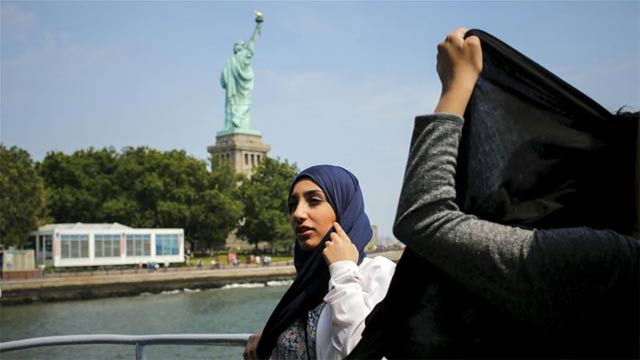
Fast forward to 2017 and Pakistan, particularly Karachi, is expected to face another extremely hot summer.
Bilal Khalid, the focal person of Pakistan Country Program on Climate and Development Knowledge Network, read his research-based paper, titled 'Supporting Karachi City in Mitigation of Extreme Heat Impact'. "We need to take climate change seriously,” he said. “It is being impacted by urbanisation. The fastest kind of urbanisation is happening in Asia and in Asia's slums. Karachi is one main city that is facing its impact."
As temperatures soar in Sindh, disaster management authorities nap
Sharing statistics, Khalid said that in August 2003, Europe was hit hard by a heatwave, with France having 15,000 deaths alone and 70,000 fatalities across the continent. “It was considered to be the worst health crisis since WWII," he said.
Khalid maintained that in the summer of 2015, there were certain weak points that resulted in failure to address the problem. There was a limited number of experts the first time the heatwave struck Karachi. Also, he said, there was poor exchange of information.
Kiran Farhan, a senior specialist of environment division at The Urban Unit, said the 2015 heatwave was concentrated in certain towns and union councils. “The day temperature exceeded 42 degrees Celsius and at night, too, temperature remained over 30 degrees Celsius,” she said. “There was no relief for several days."
WhatsApp ‘Red Alert’ message cautioning Karachiites of fake heat-wave creates panic
Farhan said the commissioner of Karachi has decided to appoint an emergency response coordinator, who will be active in his office from April 1 till October 31. “Besides that, the Met office will provide seven days forecast about the maximum and minimum temperatures,” she said. “All the hospitals have been instructed to report on heat-related illnesses and mortality issues."
Steps to be taken
Khalid shared the following steps that must be taken to beat the heat:
- Avoid going outside in the peak heat hours from 11am till 4pm
- Avoid outdoors and any strenuous activity
- Increase water intake and try to take ORS instead
- In extreme heat, keep your head and neck covered
- Wash your hands and feet with cold water more often
- In extreme heat, avoid cold bath and prefer room-temperature water or lukewarm water for showers as body temperature varies from person to person
- Take light diet. Increase fluid intake
- Make sure in your social circle, old and ill people, small children and pregnant women are looked after in the heat
The yellow, orange and red alerts
The Met department has a three-tier weather update system:
- Yellow Alert: It is a hot day advisory with a forecast of 40 degrees Celsius to 41.9 degrees Celsius
- Orange Alert: It is a hot day warning with a forecast of 42 degrees Celsius
- Red Alert: It is a heatwave emergency with temperature at 42 degrees Celsius and minimum temperature not less than 30 degrees Celsius for two or more days.
Detailed duties for different departments
Kiran Farhan, a senior specialist of environment division at The Urban Unit, said departmental duties have been categorised. The following departments will have these duties:
- Met department to issue warning
- Health department to issue advisory on how to beat the heat
- Information department to share public messages via SMS, WhatsApp and radio stations
- Education and labour departments to give vacation notice and lessen the number of working hours of the labour force
- DMCs to create relief camps
- Ambulance service to give first aid to victims on spot
- Water board to provide water on timely basis in the localities affected
- Traffic police department to ensure smooth flow of traffic and no traffic jams in this heated summer
- K-Electric to ensure electric supply in vulnerable areas of the city






1729930993-0/WhatsApp-Image-2024-10-26-at-08-52-06-(2)1729930993-0-270x192.webp)










COMMENTS
Comments are moderated and generally will be posted if they are on-topic and not abusive.
For more information, please see our Comments FAQ